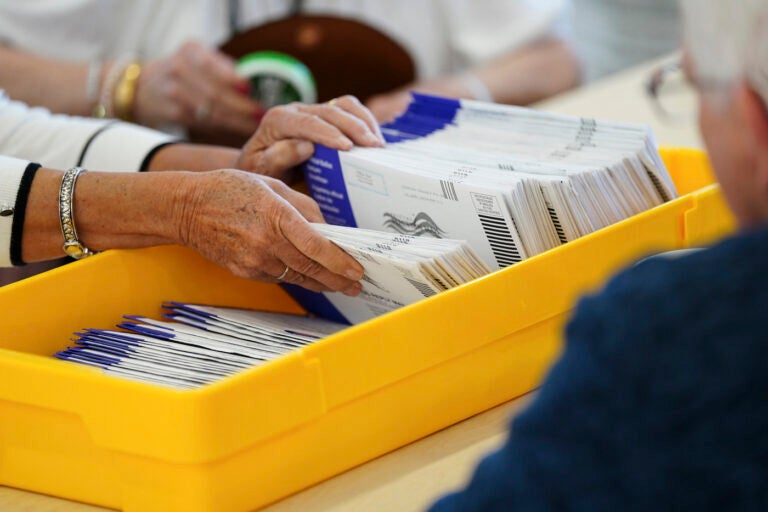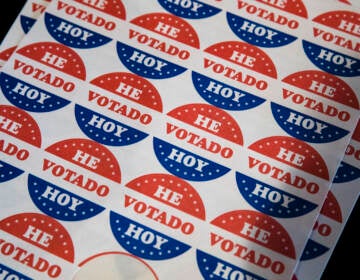Voting access in Delaware hangs in the balance as state Supreme Court hears early voting, absentee ballot arguments
A Superior Court ruled in February that early voting and permanent absentee ballot laws were unconstitutional. The state Supreme Court is now considering.
Listen :48
Workers sort mail-in ballots April 23, 2024, at Northampton County Courthouse in Easton, Northampton County, Pennsylvania. (Matt Smith / For Spotlight PA)
What questions do you have about the 2024 elections? What major issues do you want candidates to address? Let us know.
This story was supported by a statehouse coverage grant from the Corporation for Public Broadcasting.
Delaware’s top court could soon decide whether Delawareans will be able to cast early ballots or request permanent absentee status in elections later this year.
The state’s Supreme Court heard arguments this week on whether early voting and permanent absentee voting violates the state’s constitution. Lawmakers passed a law in 2019 that allowed 10 days of early voting beginning in 2022. The permanent absentee law was approved in 2010.
The Public Interest Legal Foundation sued the state elections commissioner and Department of Elections in 2022 on behalf of an inspector of elections and Senate Minority Leader Gerald Hocker, a Republican.
Superior Court sided with Hocker and the foundation earlier this year, striking down early voting and permanent absentee voting laws. The Delaware Department of Justice appealed the decision for the state.
Former judge and chair of the Delaware Republican Party Jane Brady argued the case on behalf of Hocker and the elections inspector. She said the state’s constitution specifies only one day that the election can be held, making early voting unconstitutional. She also argued that the language in the constitution requires voters to apply for an absentee ballot for each election.
“We claim that the statutes on their face are unconstitutional. They don’t comply with the language in the constitution,” she said. “Clearly, the drafters intended to address two issues: the time of the election and the manner of the election.”
Former U.S. Solicitor Donald Verrilli, representing the state, countered by arguing that both permanent absentee and early voting are employed in many other states across the U.S. and are consistent with Delaware’s Constitution and within the power of lawmakers to enact.
“Article Five, Section One [of the state constitution] provides an express delegation to the General Assembly to prescribe the means, methods and instruments of election to further a whole set of important goals,” he said. “That seems to me to be a structural indication that the Legislature has broad power here to set the means and methods of elections.”
Much of the discussion between the lawyers and justices centered around whether the General Assembly or the state constitution dictates the time, place, manner and method by which elections are held. The two sides also disagreed on Hocker’s standing. Verrilli argued the Republican, whose current term ends in 2026, is not a current candidate for office and thus doesn’t have the standing to bring a lawsuit.
The court is expected to issue a ruling within the next 60 days.

Get daily updates from WHYY News!
WHYY is your source for fact-based, in-depth journalism and information. As a nonprofit organization, we rely on financial support from readers like you. Please give today.








